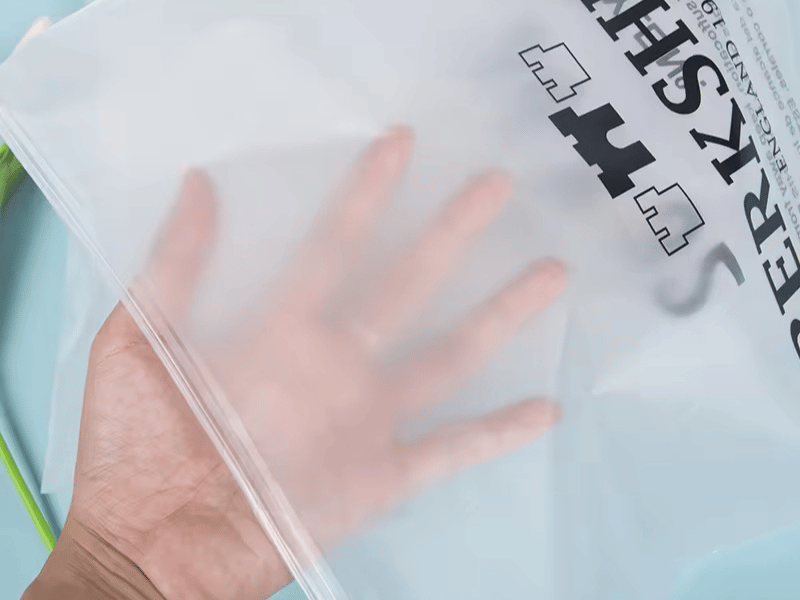In today’s fast-paced world, where convenience and efficiency are paramount, zipper bags have emerged as a versatile solution for a myriad of needs. These seemingly simple products have found their way into homes, offices, industries, and even our travel essentials, proving their indispensable nature. This blog explores the various uses, benefits, and innovations surrounding zipper bags, highlighting why they are a must-have in our daily lives.
The Evolution of Zipper Bags
Zipper bags, also known as resealable bags, have come a long way since their inception. Initially designed for food storage, their utility has expanded significantly over the years. The invention of the zipper mechanism itself dates back to the early 20th century, revolutionizing the way we think about sealing and storing items. Today, zipper bags are made from various materials, including plastic, fabric, and biodegradable substances, catering to different needs and preferences.
Household Uses: Organizing and Preserving
In households, zipper bags are a staple for organizing and preserving a wide range of items. From kitchen to closets, their applications are endless:
- Food Storage: Zipper bags are perfect for storing leftovers, marinating meat, and keeping snacks fresh. Their airtight seal ensures that food stays fresh for longer, reducing waste and saving money.
- Freezing: These bags are ideal for freezing fruits, vegetables, and even pre-prepared meals. They protect against freezer burn and allow for easy portioning and thawing.
- Organizing: In closets and drawers, zipper bags help organize small items like jewelry, buttons, and sewing supplies. They are also great for keeping cables and chargers tangle-free.
- Travel: Zipper bags are essential travel companions. Use them to store toiletries, keep wet swimsuits separate from dry clothes, or pack snacks for the journey.
Office and Industrial Applications
Zipper bags are not just confined to household use; they play a crucial role in office and industrial settings as well:
- Document Protection: In offices, zipper bags can be used to protect important documents from spills and dirt. They are also handy for organizing receipts, business cards, and other small items.
- Sample Storage: In laboratories and industries, zipper bags are used to store and transport samples securely. They ensure that contents are kept uncontaminated and clearly labeled.
- Parts and Tools: Small parts, screws, and tools can be organized efficiently in zipper bags, reducing clutter and improving productivity in workshops and factories.
Environmental Considerations: Sustainable Choices
With growing environmental awareness, the demand for eco-friendly zipper bags has increased. Manufacturers are now producing bags made from biodegradable and recyclable materials. These sustainable options help reduce plastic waste and promote a greener planet.
- Biodegradable Bags: Made from plant-based materials, these bags break down naturally over time, leaving no harmful residues. They are perfect for eco-conscious consumers who want to minimize their environmental footprint.
- Reusable Bags: Durable fabric zipper bags can be washed and reused multiple times, offering a long-lasting alternative to single-use plastic bags. They are ideal for shopping, storage, and travel.
Innovations in Zipper Bags
The zipper bag industry is continuously evolving, with new innovations enhancing their functionality and appeal:
- Tamper-Evident Seals: For added security, tamper-evident zipper bags are available. These are widely used in the pharmaceutical and food industries to ensure product integrity.
- Customizable Designs: Many manufacturers offer customizable zipper bags, allowing businesses to print logos, instructions, and other information directly on the bags. This is a great marketing tool and adds a professional touch.
- Advanced Materials: New materials, such as antimicrobial and UV-resistant plastics, are being used to make zipper bags. These materials offer additional protection for the contents and extend the shelf life of perishable items.
Practical Tips for Using Zipper Bags
To maximize the utility of zipper bags, here are some practical tips:
- Labeling: Always label the contents and date of storage on the bag. This helps in easy identification and ensures you use items before they expire.
- Proper Sealing: Ensure the bag is properly sealed to maintain freshness and prevent leaks. Double-check the seal, especially for liquids and perishable items.
- Reusing: If using plastic zipper bags, wash and reuse them whenever possible. This reduces waste and saves money.
- Size Selection: Choose the right size of bag for your needs. Using a bag that is too large can lead to wasted space, while a bag that is too small may not provide adequate protection.
Conclusion
Zipper bags are an incredibly versatile and practical solution for a wide range of needs. Their ability to keep items organized, fresh, and protected makes them an essential part of our daily lives. Whether you are looking to preserve food, organize your home, protect important documents, or reduce your environmental footprint, there is a zipper bag designed to meet your needs.
As innovations continue to emerge, the functionality and sustainability of zipper bags will only improve, making them an even more integral part of our future. So next time you reach for a zipper bag, remember the multitude of ways it can simplify and enhance your life.


